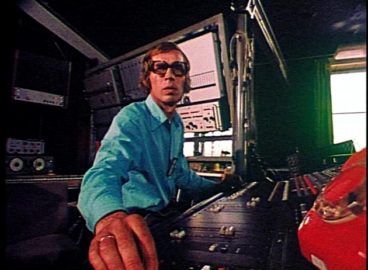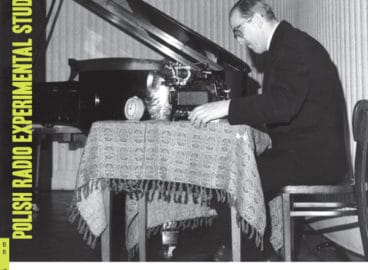This text was originally published under the theme “Polish Radio Experimental Studio: A Close Look”. The theme was developed in partnership with Muzeum Sztuki, Łódź (MSŁ). It was edited by Magdalena Moskalewicz, MoMA with Daniel Muzyczuk, MSŁ. The original content items in this theme can be found here.
The first concert of Polish electroacoustic music, also often called “music for tape”, took place in 1960. It was as if the magnetic tape itself was the instrument. On arrival, the audience encountered an almost-empty stage, and in place of live musicians with their string, brass or percussion instruments – they found only loudspeakers. The concert included the premiere of Włodzimierz Kotoński’s Study for One Cymbal Stroke (1959), whose 2 min 41 seconds were based solely on a single, pre-recorded sound. “The sound material of this study has been produced” – as the composer later explained – “from single sound obtained by striking a medium-sized Turkish cymbal with a soft stick”. Kotoński then filtered this material into 5 different bandwidths and transposed it into 11 pitches, as well as methodically regulated the length, for the complete Study to emerge.
The concert was held at the Warsaw Autumn Festival of Contemporary Music, whose program favored experiments. Born out of the relative loosening of strict cultural policies in the Soviet Block around the year 1956, the festival attracted and welcomed renowned international composers. It was there that in 1958 Karlheinz Stockhausen presented compositions of his elektronische Musik to the Warsaw audience five years after it premiered in Cologne, and where Pierre Schaffer gave a concert of his musique concrète in 1959. Polish electroacoustic music was the effect of the marriage of these two techniques, which merged the purely synthetically-generated sounds of Stockhausen’s electronic music with the pre-recorded, “concrete” sounds from the real world, employed by Schaffer.
Composers who visited Warsaw on the occasion of the Festival often used the facilities of the Experimental Studio at the Polish Radio. It was there that over 300 autonomous pieces of electroacoustic music were produced since its inception in 1957, in addition to numerous film soundtracks and music for radio broadcasts. The composers worked closely with Bohdan Mazurek and Eugeniusz Rudnik, the sound technicians employed at the Studio, whose extraordinary music production skills – cutting and pasting of music tape as well as transformation of the pre-recorded sounds – led them with time to create their own compositions.
Here you can listen to 23 music compositions (some in multiple versions) created at Polish Radio Experimental Studio by both the foreign and local composers. Starting with Kotoński’s Study, the first autonomous piece of music for tape produced at PRES in 1959, the presented selection leads through the 1960s, 1970s, and 1980s. The first decade at the Studio was marked by experiments similar to Kotoński’s: Most prominently, with multiple compositions by Andrzej Dobrowolski that employed magnetic tape together with traditional instruments: the piano, violin or oboe (Music for Magnetic Tape and Oboe Solo, 1965; Music for Magnetic Tape and Piano Solo, 1972). As well as the only electroacoustic piece ever composed by Krzysztof Penderecki, for which the composer used recordings of sung and pronounced basic elements of speech – single vowels and so-called “whistling” consonants, typical for the Polish language (Psalmus, 1961). In 1966 Bogusław Schaeffer, a composer as well as artist and playwright, created multiple versions of his Assemblage. Keeping up with the Zeitgeist both in the work’s title and the openness of its structure, Schaeffer recorded 3 versions, each with the same number of elements, recorded at a different speed.
The Studio’s production over the next decades was marked by the introduction of new equipment, especially the 1970 acquisition of the Moog synthesizer (available commercially since 1964). It was often used by the KEW group – Krzysztof Knittel, Elżbieta Sikora and Wojciech Michniewski – three young composers, who debuted in Warsaw in 1973. In Orpheus Head (1981) Sikora – who had studied with Pierre Schaeffer and Francois Bayle at Groupe de Recherche Musicales – used just one concrete, pre-recorded sound in addition to the synthesizer. It was the sound of a female voice, used to evoke the scream of Eurydice’s reverberating in the depths of inferno.
In order to popularize compositions written for magnetic tape, PRES published seven sets that included the music’s original score and the record. Most interestingly, at the time when tape recorders were not widely used, the music composed for – and produced with – magnetic tape had to be circulated on vinyl.
Audio recordings presented here come from the archives of Polish Radio in Warsaw, where they were transferred from tape into digital files. Courtesy of the Polish Radio.
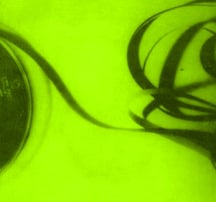
Etude for one Cymbal Stroke Włodzimierz Kotoń ski
Duration: 2’40”. Eugeniusz Rudnik – sound production. Producer: Polish Radio. Recorded in 1959, Warsaw, Studio PR. Courtesy of Polish Radio.
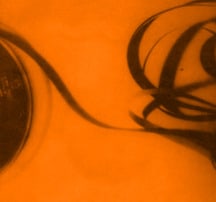
Psalmus 1961 – Magetic Tape Krzysztof Penderecki
Duration: 5’05”. Eugeniusz Rudnik – sound production. Producer: Polish Radio. Recorded in 1961, Warsaw, Studio PR. Courtesy of Polish Radio.
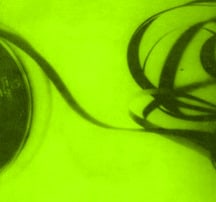
Mikrostructures – for Magnetic Tape Włodzimierz Kotoński
Duration: 5’20”. Eugeniusz Rudnik – sound production, Bohdan Mazurek – sound production, Krzysztof Szlifirski– sound production. Producer: Polish Radio. Recorded in 1963, Warsaw, Studio PR. Courtesy of Polish Radio.
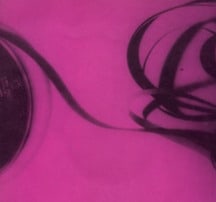
Music for Magnetic Tape and Oboe Solo Andrzej Dobrowolski
Duration: 9’00”. Janusz Banaszek – oboe, Eugeniusz Rudnik – sound production. Producer: Polish Radio. Recorded in 1965, Warsaw, Studio S-2. Courtesy of Polish Radio.
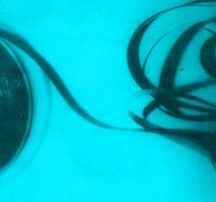
Collage – for Magnetic Tape Eugeniusz Rudnik
Duration: 5’01”. Eugeniusz Rudnik– sound production. Producer: Polish Radio. Recorded in 1965, Warsaw, Studio PR. Courtesy of Polish Radio.
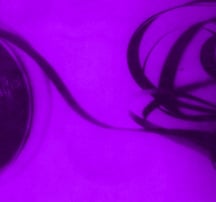
Assemblage I – for Magnetic Tape (Master Version) Bogusław Schaeffer
Duration: 8’31”. Bohdan Mazurek – sound production. Producer: Polish Radio. Recorded in 1966, Warsaw, Studio PR. Courtesy of Polish Radio.

Assemblage II – for Magnetic Tape (Master Version) Bogusław Schaeffer
Duration: 4’07”. Bohdan Mazurek – sound production. Producer: Polish Radio. Recorded in 1966, Warsaw, Studio PR. Courtesy of Polish Radio.

Assemblage III – for Magnetic Tape (Master Version) Bogusław Schaeffer
Duration: 18’01”. Bohdan Mazurek – sound production. Producer: Polish Radio. Recorded in 1966, Warsaw, Studio PR. Courtesy of Polish Radio.

Hommage a Strzemiński – film score (Concert Version) Bogusław Schaeffer
Duration: 5’48”. Bohdan Mazurek – sound production. Producer: Polish Radio. Recorded in 1967, Warsaw, Studio PR. Courtesy of Polish Radio.
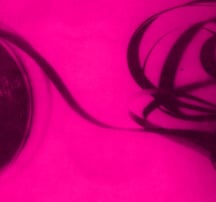
Bozzetti – for Magnetic Tape (Version I) Bohdan Mazurek
Duration: 4’59”. Bohdan Mazurek – sound production. Producer: Polish Radio. Recorded in 1967, Warsaw, Studio PR. Courtesy of Polish Radio.

Bozzetti – for Magnetic Tape (Version II) Bohdan Mazurek
Duration: 5’02”. Bohdan Mazurek – sound production. Producer: Polish Radio. Recorded in 1967, Warsaw, Studio PR. Courtesy of Polish Radio.
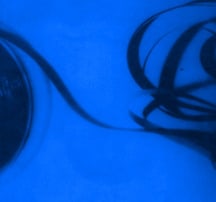
Phonomorphia I – Etude for Magnetic Tape Dubravko Detoni
Duration: 4’10”. Eugeniusz Rudnik – sound production. Producer: Polish Radio. Recorded in 14 Jan 1967, Warsaw, Studio PR. Courtesy of Polish Radio.
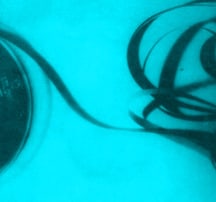
Dixi – for Magnetic Tape Eugeniusz Rudnik
Duration: 4’45”. Eugeniusz Rudnik – sound production. Producer: Polish Radio. Recorded in 1967, Warsaw, Studio PR. Courtesy of Polish Radio.

Epitafium – for Magnetic Tape (Version I) Bohdan Mazurek
Duration: 6’35”. Bohdan Mazurek – sound production. Producer: Polish Radio. Recorded in 1969, Warsaw, Studio PR. Courtesy of Polish Radio.

Epitafium – for Magnetic Tape (Version II) Bohdan Mazurek
Duration: 6’38”. Bohdan Mazurek – sound production. Producer: Polish Radio. Recorded in 1969, Warsaw, Studio PR. Courtesy of Polish Radio.

Epitafium – for Magnetic Tape (Version III) Bohdan Mazurek
Duration: 6’39”. Bohdan Mazurek – sound production. Producer: Polish Radio. Recorded in 1969, Warsaw, Studio PR. Courtesy of Polish Radio.

Aela. Electronic Music Włodzimierz Kotoński
Duration: 10’32”. Eugeniusz Rudnik – sound recording maker. Producer: Polish Radio. Recorded in 1967, Warsaw, Studio PR.Courtesy of Polish Radio
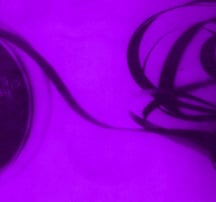
Symphony (1966) – for magnetic tape/version from 1970 Bogusław Schaeffer
Duration: 17’24”. Bohdan Mazurek– sound production. Producer: Polish Radio. Recorded in 1970, Warsaw, Studio PR. Courtesy of Polish Radio.

Heraklitiana – harp solo and magnetic tape Bogusław Schaeffer
Duration: 20’45”. Mazurek Urszula – harp, Bohdan Mazurek – sound production. Producer: Polish Radio. Recorded in 1970, Warsaw, Studio PR. Courtesy of Polish Radio.
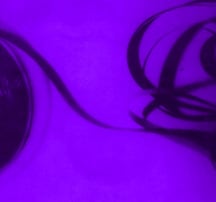
Lux et tenebrae (Osaka impression) – for Magnetic Tape Arne Nordheim
Duration: 19’30”. Rudnik Eugeniusz – sound production. Producer: Polish Radio. Recorded in 1970, Experimental Studio. Courtesy of Polish Radio.

Music for Magnetic Tape and Piano Solo Andrzej Dobrowolski
Duration: 11’55”. Dutkiewicz Andrzej – piano, Mazurek Bohdan – sound production. Producer: Polish Radio. Recorded in 1972, Experimental Studio. Courtesy of Polish Radio.

Ekecheirija – for Magnetic Tape (music composed for the opening ceremony of the 20th Olympic Games in Munich in 1972) Krzysztof Penderecki
Duration: 3’11”. Józef Bok – conductor of the National Philharmonic Choir in Warsaw, Jerzy Dukaj – declamation, Zygmunt Listkiewicz – declamation, Bernard Ładysz – bass, Włodzimierz Press – declamation, Mieczysław Voit – declamation, Tomasz Zaliwski – declamation, Andrzej Żarnecki, Eugeniusz Rudnik – sound production. Producer: Polish Radio. Recorded in 1972, Warsaw, PWSM. Courtesy of Polish Radio.

Ekecheirija II – for Magnetic Tape (music composed for the opening ceremony of the 20th Olympic Games in Munich in 1972) Krzysztof Penderecki
Duration: 2’39”. Józef Bok – conductor of the National Philharmonic Choir in Warsaw, Jerzy Dukaj – declamation, Zygmunt Listkiewicz – declamation, Bernard Ładysz – bass, Włodzimierz Press – declamation, Mieczysław Voit – declamation, Tomasz Zaliwski – declamation, Andrzej Żarnecki, Eugeniusz Rudnik – sound production. Producer: Polish Radio. Recorded in 1972, Warsaw, PWSM. Courtesy of Polish Radio.

Ekecheirija III – for Magnetic Tape (music composed for the opening ceremony of the 20th Olympic Games in Munich in 1972) Krzysztof Penderecki
Duration: 3’06”. Józef Bok – conductor of the National Philharmonic Choir in Warsaw, Jerzy Dukaj – declamation, Zygmunt Listkiewicz – declamation, Bernard Ładysz – bass, Włodzimierz Press – declamation, Mieczysław Voit – declamation, Tomasz Zaliwski – declamation, Andrzej Żarnecki, Eugeniusz Rudnik – sound production. Producer: Polish Radio. Recorded in 1972, Warsaw, PWSM. Courtesy of Polish Radio.
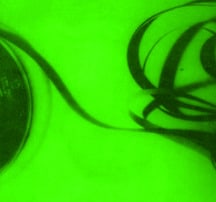
Concerto for piano and magnetic tape Szabolcs Esztenyi
Duration: 28’10”. Esztenyi Szabolcs – piano, Eugeniusz Rudnik – sound production. Producer: Polish Radio. Recorded on 7 July 1973, Warsaw, Studio M-1. Courtesy of Polish Radio.
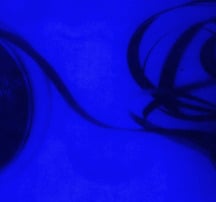
Robak zdobywca – for magnetic tape Krzysztof Knittel
Duration: 12’00”. Krzysztof Knittel– sound production, Barbara Okoń – sound production. Producer: Polish Radio. Recorded in 1976, Warsaw, Studio PR.Courtesy of Polish Radio.
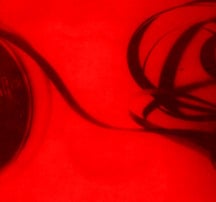
Orpheus’s Head – for magnetic tape Elżbieta Sikora
Duration: 17’08”. Barbara Okoń-Makowska – sound production. Producer: Polish Radio. Recorded in 1981, Warsaw, Studio PR. Courtesy of Polish Radio.

Homo ludens – radio ballet, not without autobiographical elements Eugeniusz Rudnik
Duration: 32’29”. Eugeniusz Rudnik – sound production, Barbara Okoń-Makowska– sound production. Producer: Polish Radio. Recorded in 1984, Warsaw, Studio PR. Courtesy of Polish Radio.
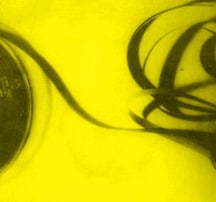
Diario ‘87 – electronic sounds with spoken text Music: Tomasz Sikorski/ Text: Jorge Luis Borges
Duration: 7’31”. Jerzy Kamas – declamation (voice-over), Barbara Okoń-Makowska– sound production. Producer: Polish Radio. Recorded in 1987, Warsaw, Studio PR. Courtesy of Polish Radio.

Ptacy i ludzie – etiuda koncertowa na 4 artystów, 3 skrzypiec, 2 słowiki, nożyczki i garncarkę ludową (concert étude) Eugeniusz Rudnik
Duration: 15’49”. Eugeniusz Rudnik – sound production. Producer: Polish Radio. Recorded in 1992, Warsaw, Studio PR. Courtesy of Polish Radio.
